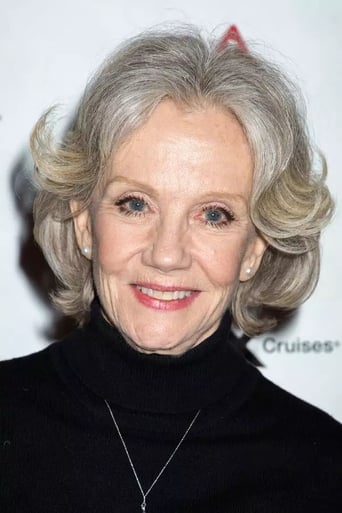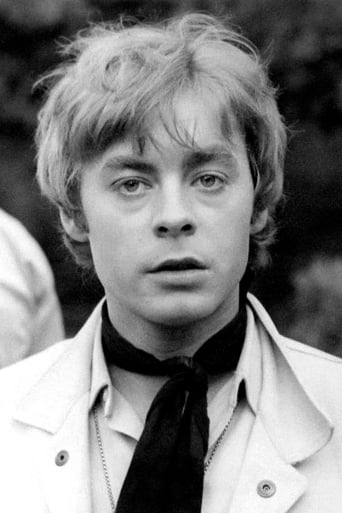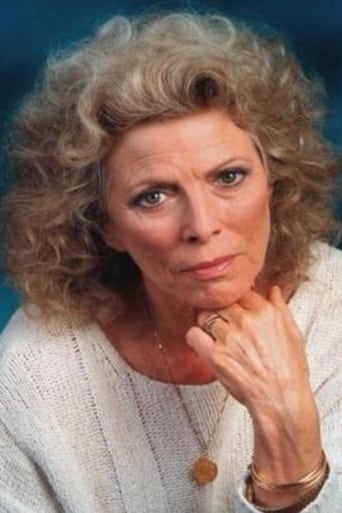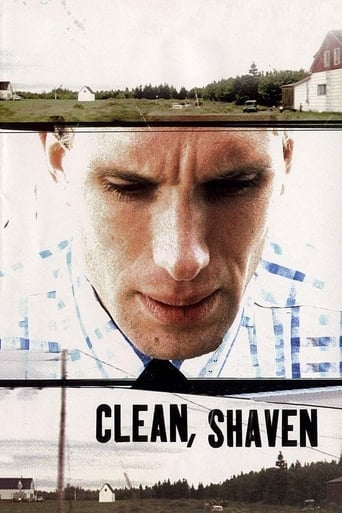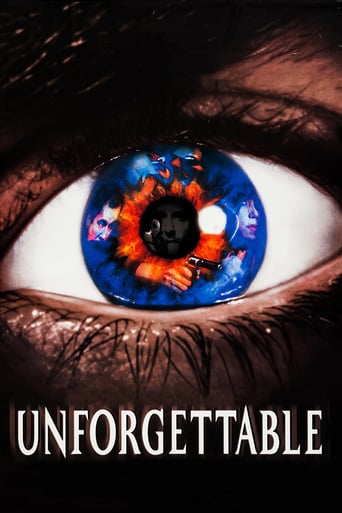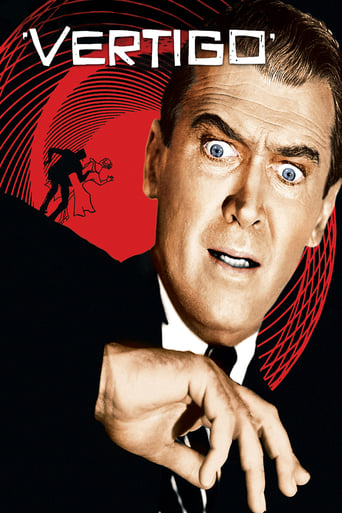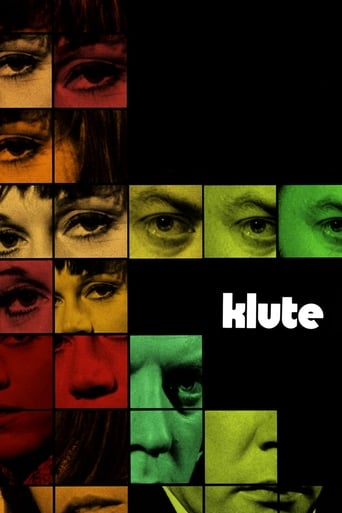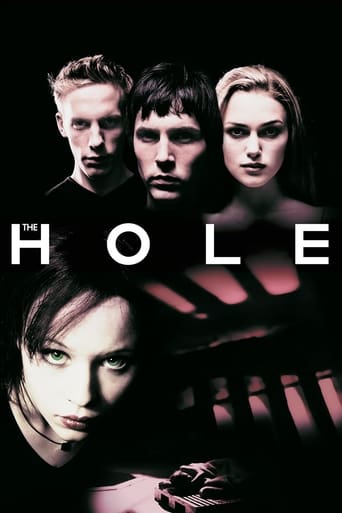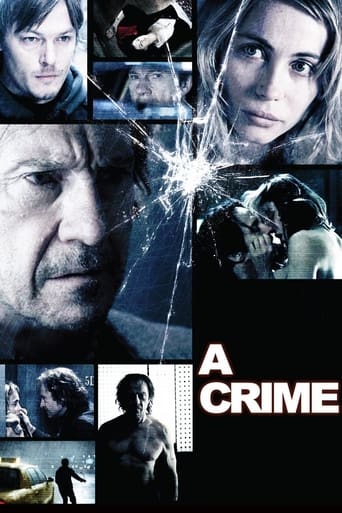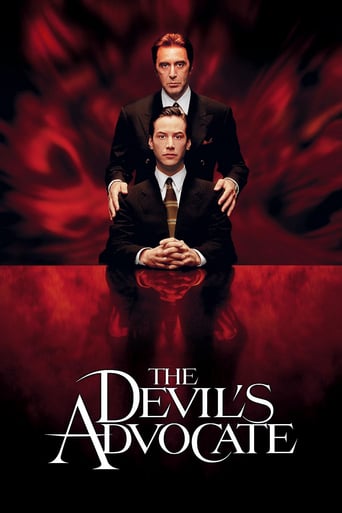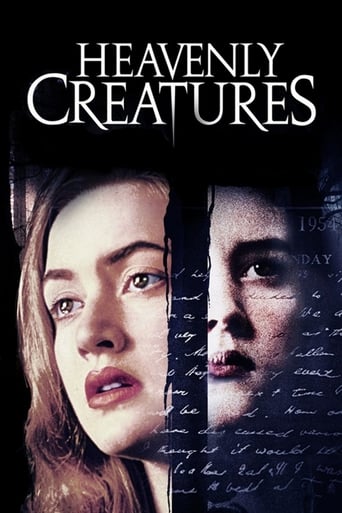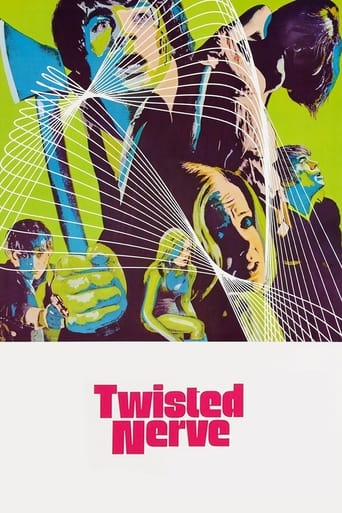
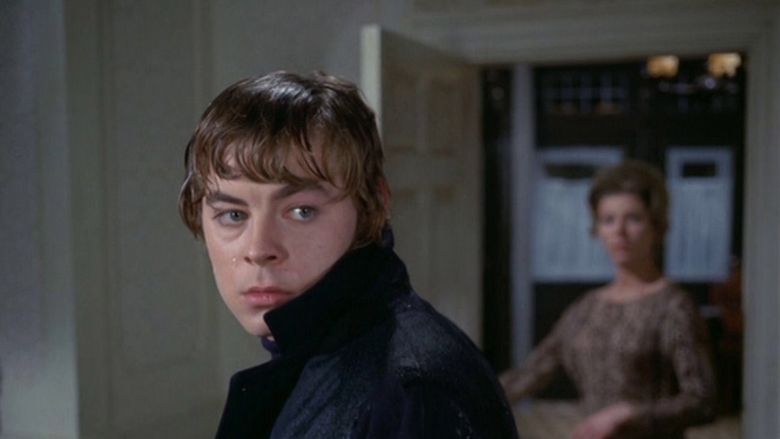
Twisted Nerve (1968)
Martin Durnley is a young man with an infantilizing mother, resentful stepfather and an institutionalized brother with Down's syndrome. To cope, he retreats into an alternate child personality he calls Georgie. After being caught during a theft attempt at a department store, he befriends a female customer who is sympathetic to him, but his friendship soon turns into obsession.
Watch Trailer
Cast


Similar titles
Reviews
The two biggest assets of "Twisted Nerve" are Bernard Herrmann's sensational score (right up there with his work for Hitchcock), and Hywel Bennett's masterfully measured performance as a man who puts on an innocent, childlike, slightly "backwards" interior but is actually a cold, cunning, calculating psychopath. The problem is, we know nearly everything there is to know about his character after about a half hour; the story unfolds slowly and without many surprises. Hayley Mills is a doll and also puts in a strong performance, but a sinfully sexy Billie Whitelaw (cast as her mother, even though she is just 14 years older) pretty much steals her thunder! Not a classic, but watchable. **1/2 out of 4.
Now here's a rarity: a '60s-era slasher movie and the one and only horror film from the Boulting Brothers, a director/producer combo better known for making genteel comedies. And what a joy it turns out to be! Best known today as the film featuring the eerily whistled tune that Tarantino borrowed for KILL BILL (thank you, Bernard Herrmann!), Twisted Nerve is an engaging portrait of a psychopath that turns out to be every bit the film that PSYCHO is. How strange, then, that it seems to be virtually forgotten.Hywel Bennett stars as Martin Durnley, a baby-faced youth suffering from the titular affliction. This, truly, is the performance of a lifetime; a frightening portrayal of a seemingly normal and friendly young man who adopts a separate personality to get close to the object of his obsession, Hayley Mills (and you can't blame him: all grown up from her days as a child actor, Miss Mills is extremely lovely). The ensuing plot is one of those 'cuckoo in the nest' stories used in the likes of everything from THE GODSEND to ORPHAN; Durnley worms his way into the life of an ordinary household before going on to wreak chaos.The packaging and advertising for this film makes it look like a slasher film in the vein of Friday THE 13TH, but it really isn't. Indeed, this film is so subtle as to be sublime. There are few murders on show, and the violence is mostly kept offscreen. Instead, the scriptwriters emphasise the deranged personality of his villain so that this becomes nothing less than a character study of a psychopath, both believable and chilling. The film is beautifully shot and laced with fine performances from Barry Foster (brash), Billie Whitelaw (seductive) and Frank Finlay (pompous). I've seen most British horror films but this one always slipped me by; now I've finally got around to watching it, it's gone to the top of my list as one of the best of all time.
Twisted Nerve, something of a linking film between Michael Powell's Peeping Tom and Hitchcock's Frenzy, has floated about like a sick ghost for so long it's somehow managed to permeate the most seemingly unconnected crannies of pop culture.Singing tea cosy Badly Drawn Boy aka Damon Gough named his record label after the film, and more recently, its main theme, a haunting melody penned by legendary Hitchcock scorer Bernard Herrmann, was half-inched by Hollywood's pet magpie for his Kill Bill, Vol 1. Penned by celebrated Peeping Tom scribe Leo Marks, Twisted Nerve, a fairly typical late-1960s psycho-thriller in The Collector mould, stars Hywel Bennett as Martin Durnley, a rich but damaged Oxford University drop-out with a mutual hatred of his banker stepfather, played by Frank Finlay. However, his pathetic mum babies the boy, a consequence of Martin's elder brother, a Down Syndrome sufferer (or 'Mongoloid' - or even 'mentally backward' as they say here), being in full-time care, and the doctors having warned Martin's parents not to have any more children - just to be on the safe side. Too late: troubled mummy's boy Martin, with his cuddly toys and penchant for smashing his own reflection, appears to have proved the doctors misgivings.Kicked out of his family home by Finlay, Martin adopts a childlike alter-ego named 'Georgie' in order to ingratiate his way into the affections and boarding house of pretty librarian Susan Harper (Mills, keen to shrug off her child star image, but about as sexy here as a sliver of ivory soap) and her saucy mum Joan (Whitelaw). Safely ensconced in the family boarding house and claiming his father's away on business, Bennett takes this opportunity to visit his stepdad with a pair of scissors in the dead of night. Mrs Harper is next done in with an axe, and Susan is cornered at home, until Timothy West's Superintendent. Dakin breaks down the door to save the day. Marks' fingerprints are all over this one: the initial resemblance to Peeping Tom is striking. Both films feature quiet, isolated psychopaths who hate their fathers; both Peeping Tom's Mark and Twisted Nerve's Martin end up at a boarding house, encountering young girls with absent fathers who live with their mothers. But Twisted Nerve has never enjoyed the critical reappraisal and patronage latterly afforded Marks' earlier work. Other than Herrmann's superb score - and the fact it's been out of circulation for years - it's easy to see why Twisted Nerve has acquired such a cult status; and it's mostly down to sheer hubris. The Boultings made their name producing and directing respectable fare like The Magic Box, Brighton Rock and 1966's The Family Way (also starring Mills and Bennett) before chancing their arm at the exploitation bazaar. Yet this film is the equivalent of piling an away-day coach with some of the most respected actors, composers, directors, cinematographers and screenwriters in the business, stalling it beside the cliff edge at Beachy Head - and gunning the accelerator.Twisted Nerve summoned up a storm the likes of which glutton-for-punishment Marks had encountered before, during the furore over Powell's bedevilled masterpiece. For it implies (quite sneakily, as it happens) that otherwise healthy siblings of Down Syndrome sufferers (and here's the sneaky bit - 'or indeed anybody, Down Syndrome sufferers siblings included'), may, repeat may, due to "some error in the chromosome structure," also be prone to hereditary mental abnormality. Such as homicidal mania.Cue howls of protest from disability rights groups while the film was still in post-production, prompting a hastily tacked-on narrated disclaimer: "Ladies and gentlemen, because of the controversy already aroused, the producers of this film wish to re-emphasise what is already stated in the film, that there is no established scientific connection between Mongolism and psychotic or criminal behaviour."Well, as Whitlelaw's cheeky lodger Gerry (future Van Der Valk Barry Foster) would doubtless scoff, "What a load of sphericals!" When your movie mischievously plays fast and loose with scientific orthodoxy for exploitation purposes, plus the film's oh-so subtle (if factually inaccurate) tagline is: 'Cleaver. Cleaver. Chop. Chop. First the mom and then the pop. Then we'll get the pretty girl. We'll get her right between the curl,' you can hardly object when you're summarily hauled before the twin arbiters of political correctness and good taste. Aside from that little matter, Twisted Nerve is overlong, sloppy and tasteless - and those are just its good points. Given the era in which it was produced, it also lends voice to the most lively sexism and racism - mostly from cheeky chimp Barry Foster, all at the same time. If Marks' darkly satirical aim was to highlight bigotry in all its manifestations - and wrong-footed attitudes towards disability in particular - he surely succeeded, but nevertheless was playing a muddled, dangerous game. In fact, the real winner of Twisted Nerve was undoubtedly the Master himself, poaching both Whitelaw and Foster (who practically reprises his role) for 1972's Frenzy, an infinitely more accomplished, tauter psycho-killer thriller.That said, Bennett is excellent as the gleefully deranged Martin, while Whitelaw even won a 1969 BAFTA for Best Supporting Actress. And Twisted Nerve is often very funny. Witness Timothy West's admonishment of his forensics expert Clifford Cox: "They buy you a half million pound lab and stick you in it with a bunch of birds wearing skirts just long enough to cover their parking meters. And what do you come up with? No more than my nipper could have told me the day he was old enough to raise his truncheon." Roy Boulting certainly raised his where his leading actress was concerned: 33 years her senior, and already a veteran of three marriages, he wedded Mills in 1973, siring Crispian Mills, who with Kula Shaker ended up eulogising the swastika and dishing up the most unwanted Anglo-Asian fare since Spike Milligan's 'Curry And Chips'.
Twisted Nerve doesn't seem to have a great reputation, and while the film (like its lead character) certainly does have some problems, I enjoyed this one in spite of them. The main problem people seem to have with this film (so much so that the filmmakers actually had to tack on an apology before the film starts!) stems from the fact that it seems to be professing that siblings of mongoloid children were more likely to become psychopaths. This idea is somewhat silly and I can see why it would bother some people; but seriously, this is just a thriller and while the idea is unlikely and misguided, it didn't bother me too much. It also should be noted that 'nurture' plays a big part in the lead character's mental health problems. The film focuses on Martin Durnley. His mother treats him like a child, his stepfather dislikes him and his mongoloid brother is institutionalised. He meets a young girl named Susan Harper, who takes pity on him (or rather, his alternative personality 'Georgie') after a shoplifting incident. But this soon leads to obsession for the troubled young man...If you go into this film expecting something deep or brilliant, you will be disappointed. As mentioned, the point that the film tries to make is not well imposed and not much else about the film has any depth. Still, as a thriller it works well. The main influence for the film is clearly Hitchcock's masterpiece 'Psycho' and the two share a lot in common. The central character is interesting for the fact that he's so strange. Hywel Bennett really succeeds in creating a character that is both bizarre and completely sinister. The supporting cast isn't as great in terms of performances, but the two leading ladies are much nicer to look at. Hayley Mills delivers the typical young British female lead, while Billie Whitelaw is the real standout for me as the young girl's mother. Twisted Nerve also features a memorable tune, and possibly takes influence from Fritz Lang's M as the lead character often whistles it. The film flows well throughout and delivers the intrigue from the character actions and the situation rather than through suspense. I can see why this film is not often hailed as a classic; but if you're looking for an interesting watch and don't care about some silly ideas, Twisted Nerve comes recommended.


